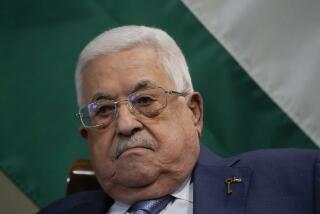A Dubious Transfer of Power
- Share via
Pakistani voters have returned a familiar face to the prime minister’s chair. Nawaz Sharif, booted out of office in 1993 for corruption, has returned to power. He has a chance to surprise some people this time, if only because expectations for his performance are so low.
Sharif served three years of a five-year term before being ousted. Subsequent elections returned Benazir Bhutto to the prime minister’s office. Unfortunately, her stint produced even more allegations of corruption than Sharif’s and more than those of her first term. In a depressingly familiar scenario, Pakistan’s president removed her last November and ordered the Feb. 3 elections.
Sharif’s Muslim League won a surprisingly large number of seats in Parliament, around 140 of the 217. Bhutto’s Pakistan People’s Party won only two dozen or so. It was a mark of the electorate’s disgust with Bhutto’s failure to end corruption, lawlessness and economic misery in the nation of 130 million people. Some Pakistanis argue persuasively that the latest Bhutto government was the most corrupt in the nation’s 49 years of independence. The wearying spectacle of corruption in an already impoverished nation was also reflected in the turnout--about 30% of eligible voters.
There have been no major policy differences between Sharif and Bhutto. Their quarrels have appeared more personal than ideological. Both profess friendship for the West, while being careful to be wary of Pakistan’s Muslim fundamentalists. Sharif did say he would work for better relations with India, which would be a refreshing change.
The new prime minister also needs to work with the World Bank and other international lenders to try to improve Pakistan’s dismal economy. Education must be bolstered, especially in the countryside. The army has to be carefully watched and reminded that its proper place is in the barracks, not in government.
That will be difficult with the unfortunate creation in recent months of the Council for Defense and National Security, a body including the heads of the armed forces, the president and prime minister. Although supposedly advisory, the council puts an official stamp on the military’s influence over government, despite the army’s history of coups and subsequent poor governance of Pakistan for nearly half the years since independence.
Sharif needs to run a government with clean hands. His relatives and those of other Cabinet ministers should be kept far from the levers of power and the purse strings. If he can bring calm to Karachi and environs, not to mention the rest of the nation, so much the better. It would be a pleasant surprise to have a prime minister serve a full five-year term. No Pakistani has been able to do it thus far.
More to Read
Sign up for Essential California
The most important California stories and recommendations in your inbox every morning.
You may occasionally receive promotional content from the Los Angeles Times.













